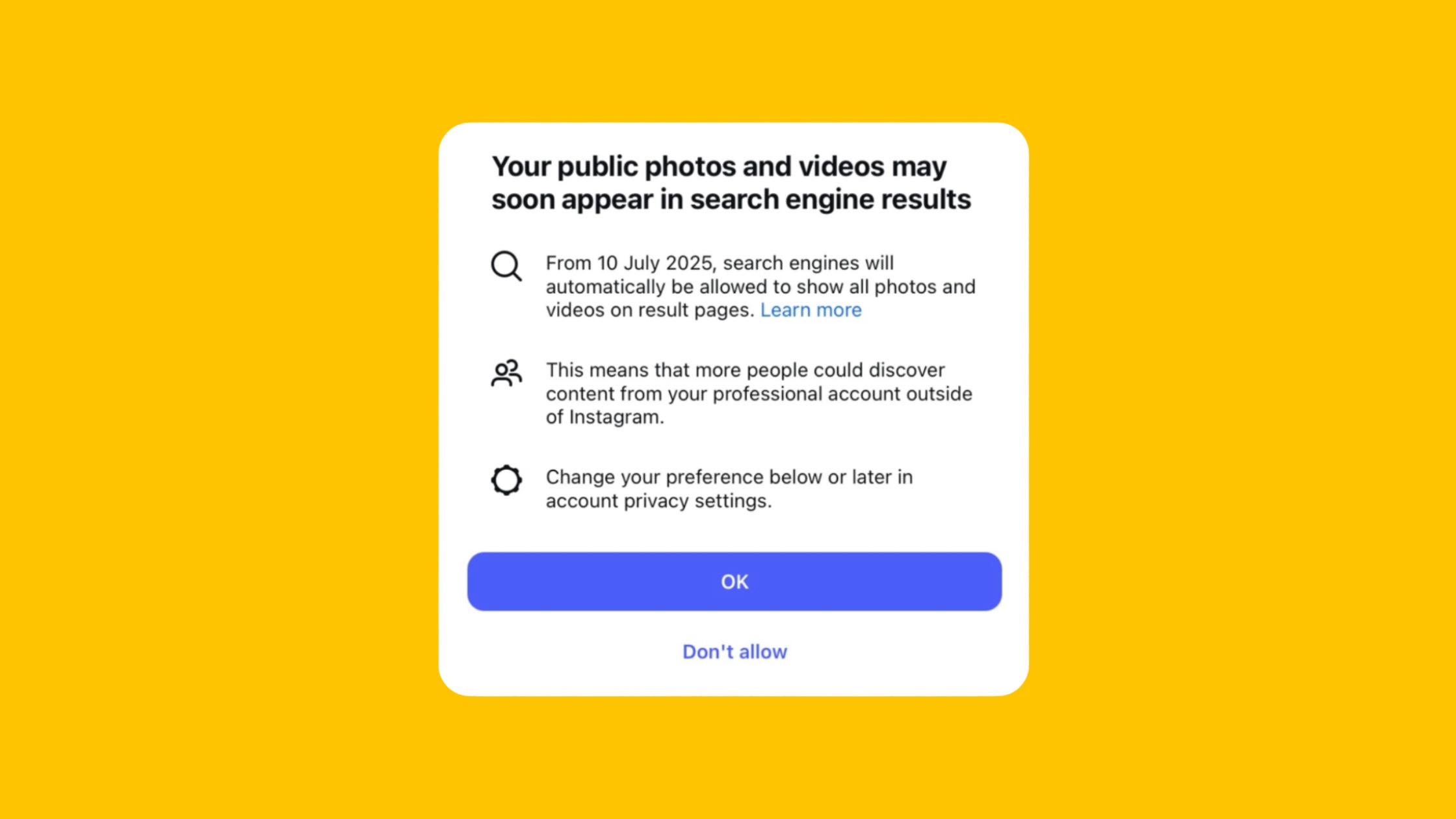
As of 10th July 2025, individual Instagram posts from creator and business accounts can now appear in search results. This development goes beyond your Instagram handle appearing in search results, a feature that has been available for indexing for some time now.
Instead, we're talking about individual posts and reels showing up in search results. That reel from last month, your latest product carousel, even throwaway captions are all now competing for space on Google alongside traditional websites.
When someone searches for recipe ideas or business advice, they might find your Instagram content on page one of Google, and we're not talking about your profile here but your actual posts. This represents a seismic shift in how social content intersects with search, because social and SEO are no longer separate strategies: they're now fundamentally intertwined.
So, Can Instagram Posts Appear in Google Search Results? And What Actually Shows Up?
Yes, provided you have a public business or creator account. This means your individual posts, reels, and carousels can now rank in search results alongside traditional web content.
Take Rhode's Instagram content, for example. When users search "glazing mist tricks" on Google, Rhode's skincare content now ranks on page one, beating out actual window solution companies discussing condensation fixes for double glazing.
Whilst this demonstrates the power of social content in search rankings, it also highlights a potential user experience issue. Someone searching for practical window maintenance advice is likely to find skincare content less than helpful.
Hasn’t Instagram Content Always Been Indexed by Google?
While this has been a hot topic recently, indexing of Instagram content isn't entirely new.
Users on Reddit suggest that this feature has been available in some regions for quite some time. Instagram's official stance has generally been to request that search engines like Google and Microsoft Bing avoid indexing users' content from stories, reels, posts, and highlights. However, the platform now allows search engines to index photos and videos from public reels and posts uploaded from 1st January 2020 onwards.
This suggests a strategic shift towards making content from this date forward indexable, rather than historical content. Some sources claim that this means context has been indexable since 2020, but we cannot find any evidence of this.
How Do I Optimise Instagram Posts for Search Engines?
The social media landscape has been shifting towards search for years. Pinterest and YouTube have long been search powerhouses, with users actively searching for tutorials, inspiration, and advice. Then we saw the rise of TikTok as a search engine, with Gen Z treating the platform as their Google for everything from restaurant recommendations to life advice.
So how do you actually optimise for this? Here are some simple things you can incorporate in your Instagram SEO strategy to give you a better chance at showing up in search results:
Create your captions with search intent in mind:
Write them like mini blog posts that answer specific questions. Instead of "loving this look" you could try "here are five ways you can style vintage band tees for work."
Optimise your text overlay on photos and reels:
Use clear, descriptive text that explains what you're showing, rather than just decorative phrases. Instead of "today's make-up" you could try "how to contour round faces."
Don't forget about alt-text:
This is crucial for both accessibility and SEO. Describe your images in detail using natural language and relevant keywords. You can keep your brand voice intact (yes, even if it's a little unhinged) but make sure you're genuinely describing the image content, not just cramming in keywords.
Conduct keyword research:
Use tools like Google Trends, AlsoAsked, Semrush, and TikTok Creator Search Insights to help you find what people are actually searching for, and how your content can bridge that gap.
Optimise your profile:
Include relevant keywords naturally, use your actual business name, and write a bio that clearly explains what you do and who you help.
The Bottom Line? Social SEO isn’t Optional Anymore
Instagram posts are now competing directly with websites for Google rankings. Those who adapt quickly to optimise their social content for search engines will find themselves with a competitive advantage in an increasingly integrated digital landscape.
If you're not already incorporating SEO best practices into your social media strategy, now is the time to start.




